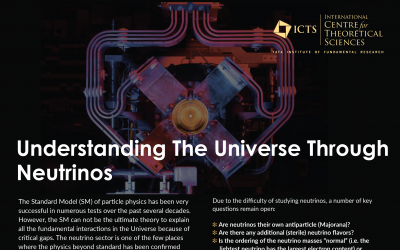The Standard Model (SM) of particle physics has been very successful in numerous tests over the past several decades. However, the SM can not be the ultimate theory to explain all the fundamental interactions in the Universe because of critical gaps. The neutrino sector is one of the few places where the physics beyond standard has been confirmed through the observation of neutrino oscillations, a phenomenon which cannot occur with the massless neutrinos predicted by the standard model. Neutrinos are elementary particles with spin ½, zero electric charge, and tiny but non-zero masses. They come in three distinct flavors and can oscillate among themselves as they propagate. Since they only feel the weak force, their cross section for interacting with matter is extremely small. In collider experiments, they can only be identified as “missing energy.” Consequently, large specialized experiments had to be built for studying neutrinos. These neutrino experiments have evolved from single-purpose to multi-purpose research facilities covering a broad spectrum of research topics.
Due to the difficulty of studying neutrinos, a number of key questions remain open:
- Are neutrinos their own antiparticle (Majorana)?
- Are there any additional (sterile) neutrino flavors?
- Is the ordering of the neutrino masses “normal” (i.e. the lightest neutrino has the largest electron content) or inverted?
- Is CP (charge-parity) symmetry violated in neutrino oscillations?
- In the phenomenological sector, there are several new physics models inspired by neutrino masses.
The goal of this school is to prepare the next generation of PhD students and postdocs to work in this vibrant field of neutrinos. It will feature lectures by renowned experts spanning the spectrum of modern neutrino physics.
There will be pre-school training on neutrino physics and/or softwares used in the neutrino physics research, such as, GENIE, CORSIKA, GLoBES, TAUOLA etc.
Accommodation will be provided for outstation participants at our on campus guest house.
Eligibility Criteria: The program is intended mainly for PhD students or early postdocs working (or starting to work) on neutrino physics (experiment or theory). The applicant should write a brief description, in one page, of their research experience/plan and how this school will benefit their future research work.
ICTS is committed to building an environment that is inclusive, non-discriminatory and welcoming of diverse individuals. We especially encourage the participation of women and other under-represented groups.
 icts
icts res
res in
in

